
Do you have what you need to make your garden grow?


Garden Center
Store Hours
Mon-Sat:
6:00am - 10:00pm
Sun:
8:00am - 8:00pm
Curbside:
09:00am - 6:00pm
Location
Popular at Your Garden Center
Spring Garden Supplies
Explore Popular Spring Plants
Garden Project Calculators
;Resize=(703,395.44))
Grass Seed Calculator
When you're ready to seed your lawn, our calculator helps you estimate the amount of grass seed you'll need to get the job done.
;Resize=(703,395.44))
Mulch Calculator
Enter your preferred material, the square footage and mulch depth of the coverage space for accurate results.
;Resize=(703,395.44))
Fencing Calculator
We'll calculate the amount of fencing you should purchase based on your property needs.
Shop Outdoor and Garden Brands
Frequently Asked Questions About Gardening
Which planting zone am I in?
Check the USDA zone map, as planting zones have shifted over the years. Zones with higher numbers can plant earlier in the year. Choose plants that are meant for your zone and increase your odds of successful gardening.
Can I just put seeds in the ground?
If the soil is warm and pliable, consider planting your fruit, flower, or veggie seeds directly into your garden. This is called the "direct sow" method. The time to plant will be after the threat of frost is gone for the season, as seedlings and sprouts can't weather those conditions. You can also start your seeds indoors if you'd like. Consult your seed packet for when and how to sow seeds.
Do you carry organic seeds and plants?
We offer many organic gardening options, including organic fruit seeds and veggie seeds, as well as organic herb and flower seeds that are subject to availability. We also carry the organic fertilizer to feed your plants and the organic soil to plant them in.
Do I have to harden off my seedlings before planting them outside?
Yes, if you raised plants indoors from seeds in your own plant nursery, harden them first before you transplant them. Hardening allows your seedlings to adjust to outdoor life, spring rains, and temperature swings, making them more resilient against cold snaps. It slows their growth until they're strong and ready to take off during a spring warm front.
Can I strengthen my seedlings before planting them outdoors?
Get your sprouts used to breezy spring days and storms with a fan and keep fungus from growing in damp conditions. Set up an oscillating floor fan on low to mimic the wind. Just the gentlest breeze for several hours a day will do the trick — no need to prep them for a hurricane. The stems and leaves will get used to blowing in the breeze and not snap when a gust comes through. If you don't set up a fan, your seedlings may be more sensitive to strong winds. Try to plant between storms.
Should I use peat moss starters or coir starters?
Seed starters, full of nutrients in pots or pellets, work for new and experienced gardeners. You don't have to use these starters if you're planting in soil, but you may want to. Starting seeds in peat pots works best for delicately rooted plants like carrots and beets, as well as flowers that need acidic soil. Some people prefer coir starters instead, as they have a neutral pH. Check what type of soil your plants need to help narrow it down, and chat with a garden center associate if you need more info.
Garden Project Ideas
The Home Depot Garden Center at E Charlotte
Set Up For Springtime
On beautiful spring days, tidy the yard before everything blooms in earnest. Remember to measure your garden so you can find fresh mulch near you as soon as it's available. Don't forget to sweep out the gazebo and clean the shed in preparation for spring, too. No matter which plants you need and what outdoor projects you choose to tackle, search for your local plant nursery and find that The Home Depot E Charlotte Garden Center can help you enjoy your spring activities to the fullest.
Plant Hardiness Zones Explained
The first thing you should know when planting vegetables, spring flowers, and other seeds is your planting zone. Every location in the U.S. and its territories is sorted into blocks by climate. Find your zone on the USDA plant hardiness zone map and learn when to plant seeds.
For example, you could transplant bell peppers outdoors in mid-March in Zone 10, but not until the end of May in Zone 4. You'll have good results with plants that have your zone number or less. In other words, a Zone 6 garden can support plants listed as Zones 1–6. You can plant seeds indoors roughly a month before you can plant them outside, known as direct sow. Be sure to read your seed packet for details. If you start plants later than recommended, it's not ideal, but it will likely even out as time passes.
Gardening in Your Growing Zone
Kentucky, Tennessee, Virginia, and West Virginia are in Zones 6–8. Cruciferous veggies and certain herbs are ready to grow when you're ready to plant. This includes kale, broccoli, and cabbage. Greens like spinach and artichokes, early-blooming annuals like marigolds, and fragrant herbs, including basil, parsley, and oregano, also don't mind an early beginning. Even in the highest peaks of West Virginia in Zone 5b, traditional garden vegetables like peppers of all kinds, cucumbers, and tomatoes are fine with an early spring or late winter start indoors under the grow lights.
Look up the date of your last predicted frost, then count backward 6 to 8 weeks. That's the time you should sow your seeds indoors. The idea is to have strong baby plants that are ready for transplant at the same time the ground is warm enough. Do your best and enjoy the process — watching your plants grow, bloom, and put out tiny veggies that'll grow to harvest size is part of the fun.
Start Seeds Indoors
Grow your garden from seeds by starting them indoors in your own plant nursery. We've got all the seed starter supplies you'll need. For best results, you'll want grow lights or a warming mat to go with your seed tray or plant pots. If you're planting a larger garden, use seed trays — like the ones you see sprouts in at your E Charlotte Garden Center — to stay organized and plant tiny soil plugs when the time comes. You can also use pots with potting soil and seed starter mix.
Measure your finger to use it as a ruler. In general, you'll plant 3–5 seeds, then press them into the soil to the depth you need with your finger. Mark where you planted the seeds with a plant tag or toothpick. That way, you'll know where your seeds should pop up. Otherwise, it'll be a surprise when the sprouts push out of the soil.
Sprouts
Prepare your seed sprouts for outdoor life while they're still indoors. These micro-seedlings are fragile — only an inch or so high, with the tiniest seedling leaf or two — but they're resilient. Seedlings don't get all this pampering in nature, so they can handle more than you think. However, don't go overboard, as your sprouts are still babies. You can even use an oscillating floor fan on low to mimic the wind and strengthen their stems.
Harden Your Seedlings
When you're hardening your sprouts and gradually introducing them to the outdoors, be flexible. Keep an eye on your baby plants. If they're looking rough, don't push them. It’s ok to roll back a step or two if need be: Bring them inside overnight or put them in shady places instead of direct sun. As always, make sure they're watered enough. Take wilted plants inside and give them a good drink, making sure they're healthy before setting them outdoors again.
Transplant Young Plants Into Their New Homes
Carefully take your seedling out of the container. A good way to do this is to turn it upside-down or sideways and gently squeeze the plastic to break the seal. If your transplant grew in the garden, leave plenty of room around the stem and dig deeper than you think with your garden trowel. You don't want to damage the root system. Place it into the hole you dug for it, even with the surrounding soil.
Protect Your Garden With Mulch
Finish off your garden with mulch and compost. Compost enriches the soil so your garden can grow even better. It may help foster larger and stronger plants that bear more fruit and flowers. Mulch keeps your soil from drying out and controls weeds. Compost and mulch can be DIY creations, but you can also purchase them in-store. The next time you're looking for "mulch near me," stop by the Garden Center to get the perfect amount.
Greet the Spring
Late winter into early spring is an exciting time in the world of gardening. Prepare to fertilize your lawn, plan your garden and landscaping, and browse The Home Depot nursery to find inspiration on which spring flowers to plant when the weather warms. For those without lawns, consider adding artificial grass or a pellet grill to your outdoor space. Shop for the fertilizer, seeds, and soil you need in the aisles of your E Charlotte Garden Center, online, or on our mobile app. Let's get growing together.
Nearby Stores
Find Another Store
1837 Matthews Township Pkwy
Matthews, NC 28105
6.15 mi
Mon-Sat: 6:00am - 10:00pm
Sun: 8:00am - 8:00pm
1220 N Wendover Rd
Charlotte, NC 28211
6.36 mi
Mon-Sat: 6:00am - 10:00pm
Sun: 8:00am - 8:00pm
8135 University City Blvd
Charlotte, NC 28213
6.94 mi
Mon-Sat: 6:00am - 10:00pm
Sun: 8:00am - 8:00pm
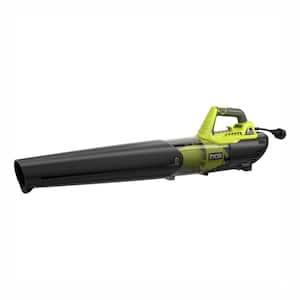
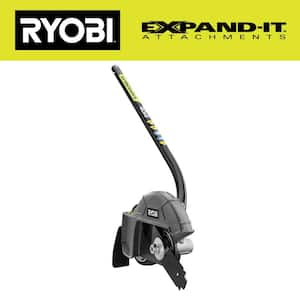
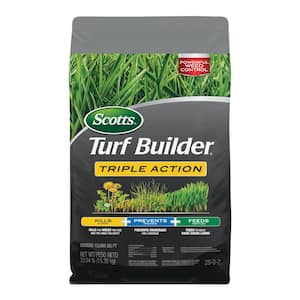
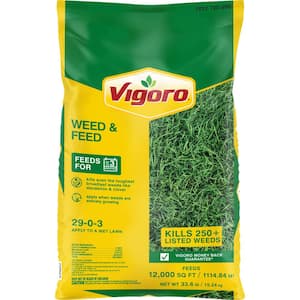
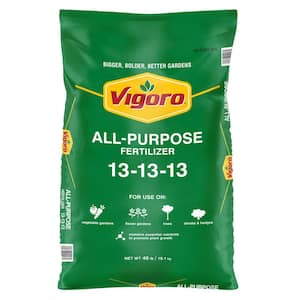
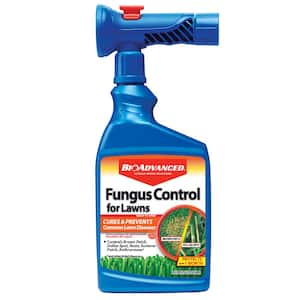
)
)
;Resize=(300,300))
)
)
/2023_P2_Rain_Barrels_Product%20Image%20(square).jpg?im=Resize=(300,300))
)
;Resize=(300,300))
)
;Resize=(300,300))
;Resize=(300,300))
;Resize=(300,300))
)
;Resize=(300,300))
/12_SOIL_B_0420_Social%20media%20(square).jpg?im=Resize=(300,300))
;Resize=(300,300))
;Resize=(300,300))
)
)
)
;Resize=(300,300))
;Resize=(300,300))
;Resize=(300,300))
;Resize=(300,300))
;Resize=(300,300))
)
;Resize=(300,300))
/18Patio_Camden_Seagrass_5pcSeating_Planters_302468736_DTL3_L_Social%20media%20(square).jpg?im=Resize=(300,300))
;Resize=(300,300))
;Resize=(300,300))
;Resize=(300,300))
;Resize=(300,300))
;Resize=(300,300))
)
)
)
.jpeg?im=Crop,rect=(363.69230769230774,1.2307692307692308,958.7692307692308,958.7692307692308);Resize=(300,300))
;Resize=(300,300))
;Resize=(300,300))
;Resize=(300,300))
)
)
;Resize=(300,300))
;Resize=(300,300))
;Resize=(300,300))
)
;Resize=(300,300))
)
)
)
)
;Resize=(300,300))
;Resize=(300,300))
)
;Resize=(300,300))
)
)
/Capello_Spring_Mum_10in_Social%20media%20(square).jpg?im=Resize=(300,300))
;Resize=(300,300))
)
)
;Resize=(300,300))
;Resize=(300,300))
)
)
)
)
)
;Resize=(300,300))
;Resize=(300,300))
;Resize=(300,300))











































